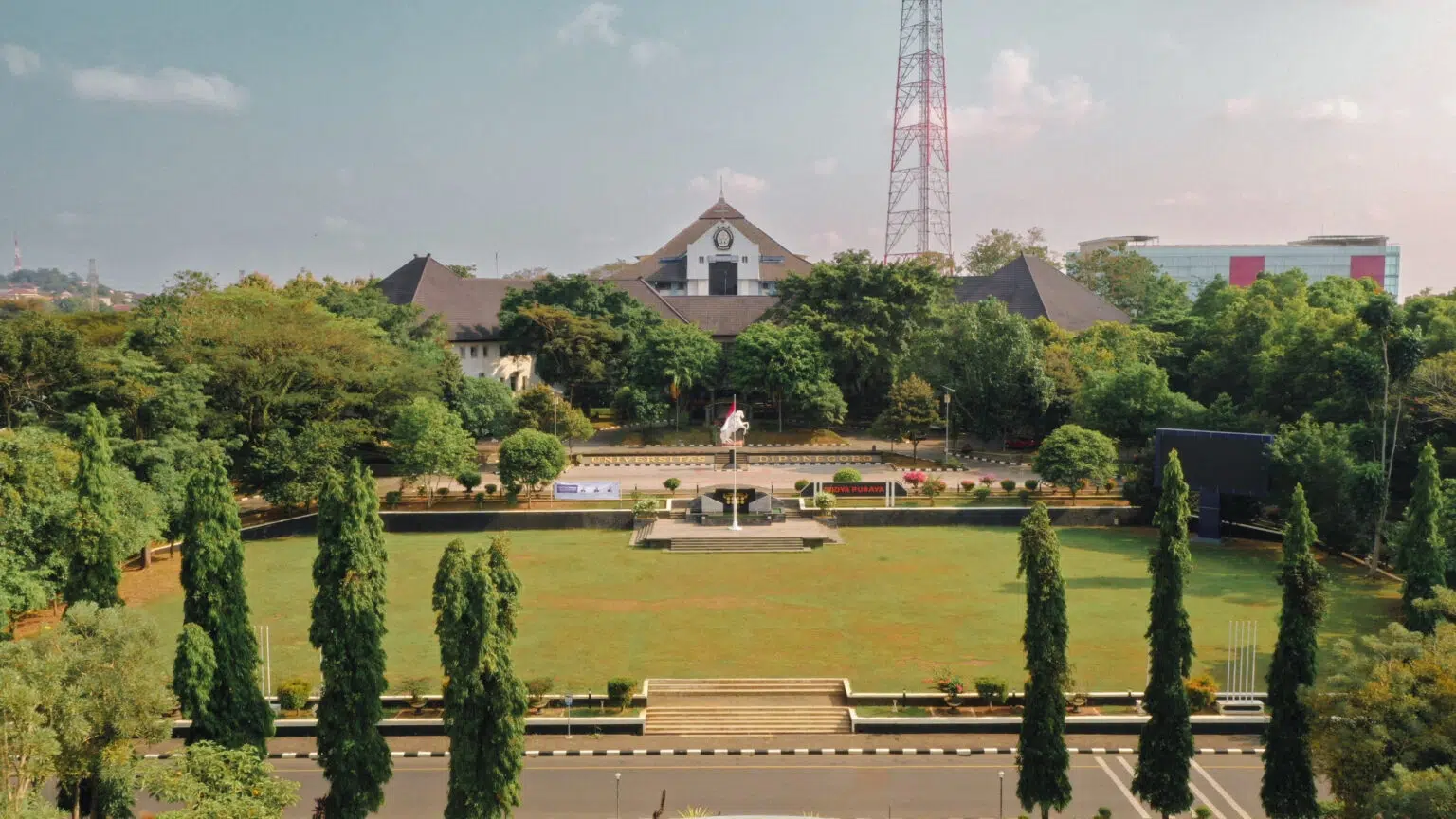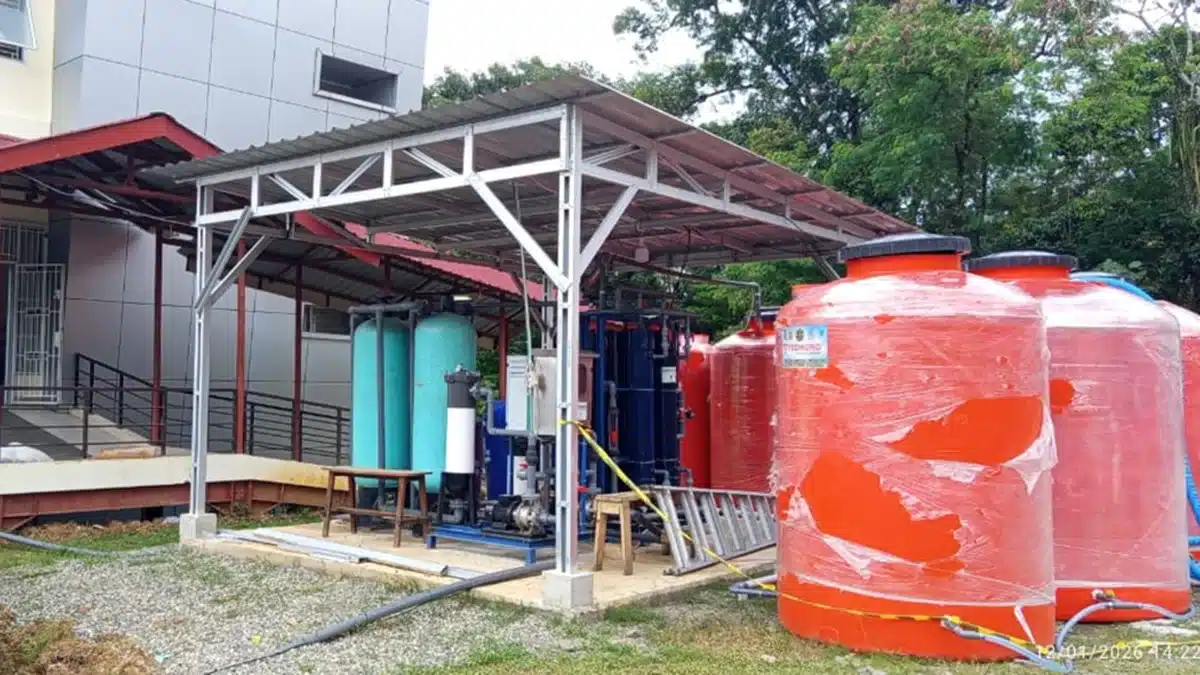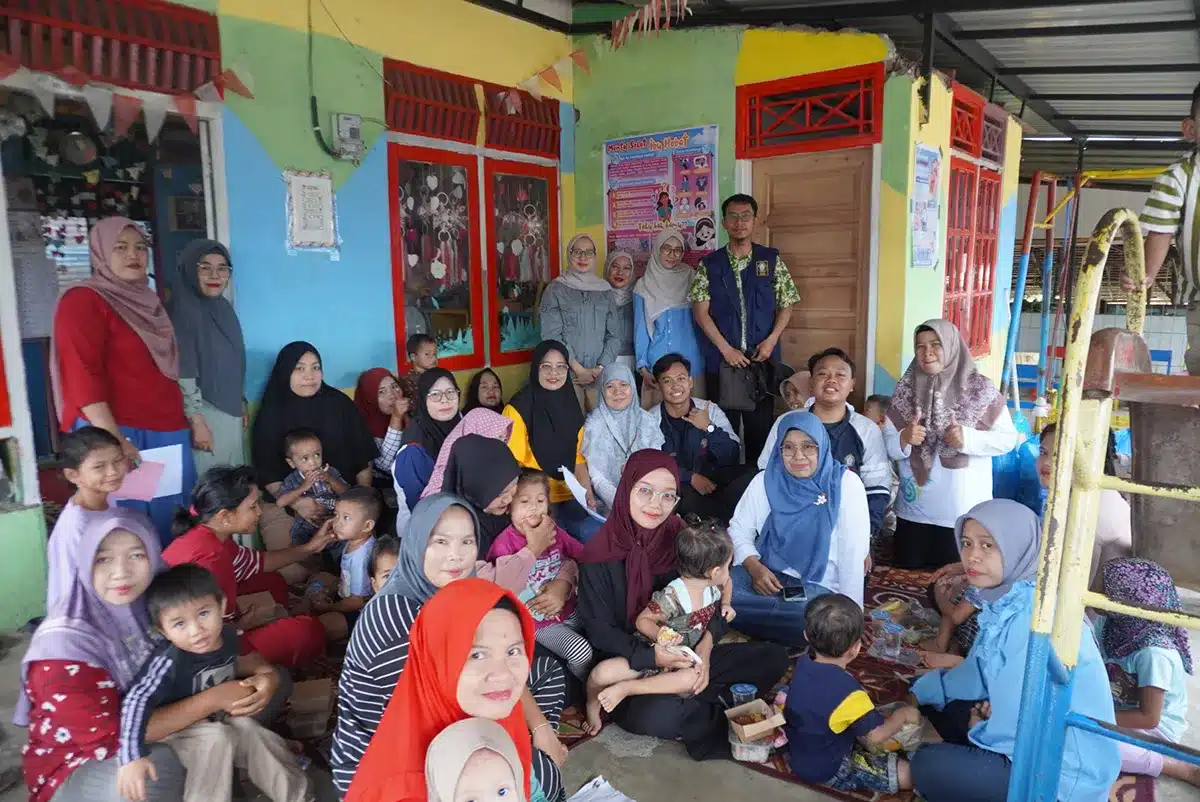SEMARANG — The Faculty of Science and Mathematics (FSM) of Diponegoro University (Undip) supported to strengthening fisheries research through its scientific disciplines and competencies. Faculty of Science and Mathematics Undip is actively involved in the 2021 MF Kedaireka (Indonesian Sovereignty Matching Fund for Reka Cipta) program which is implementing the Multi-Storied Floating Net Cages (KJABB) with Integrated Multi Trophic Aquaculture (IMTA) system in Karimunjawa, Jepara Regency, Central Java.
Currently the Head of Laboratory of the Center of Marine Biomonitoring for Sustainable Aquaculture (Ce-MEBSA) Undip led by Prof. Sapto P. Putro, Ph.D. has realized 8 KJABB-IMTA units with a diameter of 6 meters from the planned 10 KJABB-IMTA units. The development of KJABB-IMTA in offshore waters is intended as a model of cultivation with several aquaculture products in the same area without increasing the area. It is designed to form ecologically mutual relationships as one food chain in the same area/system at the same time.
The Dean of Faculty of Science and Mathematics Undip, Prof. Dr. Widowati, S.Si, M.Si, said the involvement of Faculty of Science and Mathematics in the MF Kedaireka program initiated by Ce-MEBSA to support studies in the field of fisheries conducted by the Diponegoro Campus academic community. MF Kedaireka activities in the Karimunjawa National Park Hall area are also used by students in the acceleration program for the implementation of the Free Learning – Independent Campus to be converted into several academic activities, including thematic community service (KKN), final assignments, practical work , and relevant courses.
“Science-based development remains the main priority. But collaboration is a necessity. Therefore, Faculty of Science and Mathematics must also synergize with other scientific fields so that the resulting innovations have optimal usability,” said Prof. Widowati who is also a member of the Undip Ce-MEBSA Team, on Monday (22/11/2021).
She further said that the implementation of multilevel round floating net cages would still be carried out in the conditions of the Covid-19 outbreak. Recently, seeds of white snapper (lates calcarifer), star pomfret (trachinotus blochil) and beautiful grouper (hybrid Epinephelus microdon X E. polyphekadion) have been sown.
In this activity, in addition to the Chief Executive of MF Kedaireka, Prof. Sapto P. Putro Ph.D., also attended the Vice Dean for Learning, Student Affairs, and Research of FPIK Unpad, Dr. Ir. Rita Rostika, M.P. (team member); President Commissioner of PT Rekayasa Agromarin Indonesia (RAI), Drs. Imam Kadarisman (partner); lecturer of Oceanography of FPIK Undip, Dr. Muhammad Helmi (member); lecturer in Computer Science of FSM Undip, Satriyo Adhy, S.Si., M.Sc.; Deputy Director of MSTP Undip, Ridhuwan, S.Si., M.M.; Head of the Center for Brackish and Marine Fish Cultivation, Central Java Fisheries and Marine Service, Aris Setijono, S.Pi., M.Sc.; Chair of Small Fish Cultivation Group of Karimunjawa; representatives of BBPBAP Jepara, Indra SSI; fishpond entrepreneur in Karimunjawa Islands, Sutrisno; and cross-study students involved in the activities.
Chief Executive of MF Kedaireka, Prof. Sapto P. Putro Ph.D., who is also the Head of Laboratory of the Center of Marine Biomonitoring for Sustainable Aquaculture (Ce-MEBSA) Undip said the presence of modern KJABB-IMTA in the utilization zone is expected to be able to complement several traditional floating net cages, which had been previously installed by local residents. “We hope that the KJABB-IMTA will be a pilot project for the concept of modern cultivation that still prioritizes the carrying capacity of the regional environment,” said Prof. Sapto Putro.
The development of smart modern aquaculture and the innovative works of KJABB-IMTA are being a field laboratory which is expected to facilitate the research conducted by lecturers and students across study programs. Especially in the development of cultivation zones, as a place for the development of applicable research on the use of areas that prioritize the principles of conservation and environmental insight.
“Since its invention, the KJABB-IMTA application has been in collaboration with various parties, including the Fisheries and Marine Service of Seribu Island, DKI Jakarta; the Marine and Fisheries Service of Bintan Regency, Riau Islands; Batam Sea Aquaculture Development Center; and the Marine and Fisheries Service of Central Java. The current implementation in the Karimunjawa Islands utilization zone is coordinated with the Karimunjawa National Park Office,” he said. (PR team)








